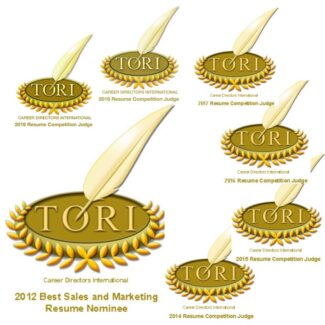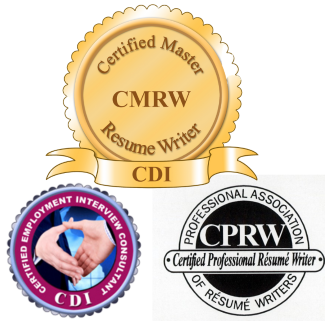 Speaking only for myself, I know I have a difficult time remembering details from last week, let alone a project I completed four months ago. Therefore, one of the best ways to prepare for a time when you may need to share your accomplishments is to collect details of your achievements as you go along. “I don’t need to update my resume right now, so why would I need to update a list of my accomplishments?” you ask. Read along and I’ll share with you seven additional situations why having an up-to-date listing of your professional achievements will be to your advantage.
Speaking only for myself, I know I have a difficult time remembering details from last week, let alone a project I completed four months ago. Therefore, one of the best ways to prepare for a time when you may need to share your accomplishments is to collect details of your achievements as you go along. “I don’t need to update my resume right now, so why would I need to update a list of my accomplishments?” you ask. Read along and I’ll share with you seven additional situations why having an up-to-date listing of your professional achievements will be to your advantage.
First, why is it important to keep track of your achievements?
In sports, we keep score. It helps evaluate our progress compared to others. In your career, it’s sometimes harder to measure progress and the value you add to an organization (and if your current employer does not provide performance evaluations, tracking your own accomplishments is even more important).
When to Collect Accomplishments
There are many scenarios when you can benefit from a review of your accomplishments above and beyond basic job duties and responsibilities— and it’s not just when you’re developing or updating your résumé. Consider the following reasons for taking score of your accomplishments:
- For performance evaluations or an annual review
- To set your personal and professional goals for the next year
- Tracking the progress of projects you’re working on
- To support your candidacy and qualifications in a job interview
- When you want to make the case for a raise or a promotion
- To remind you of your achievements when you’re having a bad day
- When applying for recognition (awards or scholarships)
Quantifying your accomplishments also helps you stand out from others who do the work you do — whether you’re using the information for a raise or promotion request, or when seeking a new job opportunity.
How to Track and Document Accomplishments
There are several ways you can collect your accomplishments:
- Create a Microsoft Word file to document your achievements. (Be sure to back up your file regularly.)
- Set up a folder for accomplishments in your email program and send yourself emails to store in that folder.
- Use an app like Evernote.
- For an “offline” method, something as simple as a file folder or notebook can be used to track your achievements.
Make Tracking a Habit
When you receive a “kudos” email, forward a copy to your personal email account. To help you organize it, tag or label it with a specific subject line (like “Kudos”).
If you receive notes of appreciation from customers, coworkers, or your company, compile those. You can make a copy and keep it in hard copy form, or take a screen shot and keep a digital copy.
You should also print out and/or take a screenshot of any LinkedIn Recommendations you have on your profile. These are an important part of your accomplishments record as well.
Other ways to document accomplishments:
- Take photos.
- Collect news clippings (the digital equivalent is setting up a Google Alert for yourself)
- Create a brag book or portfolio.
How Often?
As often as necessary. For some, that may mean weekly updates (for example, if you’re working on a series of projects); for others, that could mean a quarterly or six-month assessment. The most important thing is to take the time to do this on an ongoing basis. Put an alarm or task reminder on your calendar so you remember to set aside the time to track your accomplishments regularly.
In the next post of this 3-part series, I’ll share with you three proven methods to help you effectively write up your accomplishments.
January is the perfect time to consider updating your resume. I am happy to discuss strategies and methods for making your resume a key marketing tool for your job search. Call or email me today!

